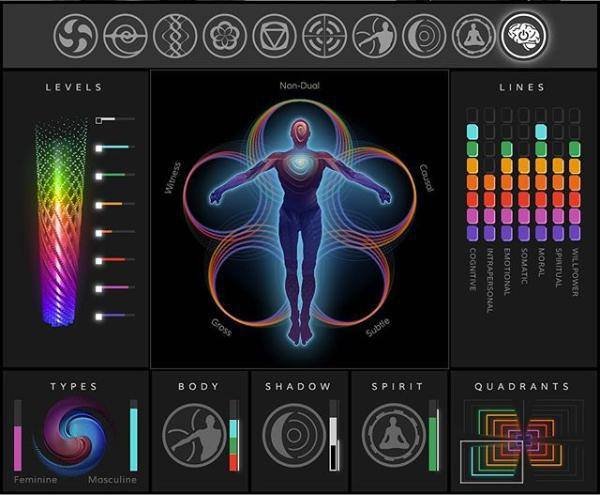🧘🏻♂️ a meta-system for modular self-development & interoperability across philosophies, methodologies and perspectives
sub-title: approaches to self design, self as a system, encoded philosophy, integral spirituality and conscious life operating systems.
1) mapping approaches to self-transformation
integral theory already did that with religions, wisdom traditions, scientific discoveries and psychological studies.
i could quote the works of eric brown on hedonic engineering: building a psycho-spiritual growth stack, euvie ivanova on psycho-technologies for the age of collapse, john vervaeke on religion that is not a religion, psychotechnologies and distributed cognition and the meaning crisis as a whole. (i love their works and recommend all of them)
my good friend marcelo peterlini also has been doing his own research and co-creation with daniel thorson on the church of the intimate web, which also features a synthetization of a lot of powerful perspectives.
plus some possibility management on thoughtware upgrades... and many others [to be explored]. sadhguru - self-engineering, spiritual lineages...
most of these aim to be multiperspectival, open-ended, integrative approaches to self-development and spirituality, but that's still what makes the most sense and resonates for me.
is coordinating different perspectives even possible?
yes.
goodly labs are doing a great job around coordinating perspectives. i'll dive into it more on my next article (💭 foundational concepts for developing regenerative information ecologies & empowering knowledge commons), but the society library also.
beyond integral, there's a lot of work being done with teal organizations, (...)
[...]
we can be forever seeking "who has/what is the more comprehensive/coherent/whole approach". so i believe this is more of an individual unfoldment path.
we all came here with different missions, needs, backgrounds and challenges. "all paths lead to the tao, but not all are equally valuable".
the age-old challenge of self design is as much a work of design as of discovery and deconstruction.

any new discovery becomes just another "tab" or "widget" there, that opens up a whole rabbit hole of discovery and investigation.
-> why integral is so powerful: it provides as close to an agnostic view as possible (or at least that i've seen). a way of indexing, interpreting and categorizing spiritual (and more) experiences.
if we break down processes, there are: consciousness development itself (states & stages), psychological development, learning, lines of intelligence, trauma, intimacy development, shadow work, parts work, flow states, altered states, etc...
i favor a modular approach. you don't need to agree with the complete worldview of a certain approach, practice or tradition, but practice/experiment with it and develop more depth over time. the point is to gradually explore, learn and incorporate what makes sense for you into your personal systems.
gamers are usually familiar with this idea since they're often tweaking their games with DLCs or mods.
a meta-systemic approach
your life operating system
in nerd terms: epistemology, metaphysics, ontology.
the set of beliefs, values, conditionings with which you operate in life.